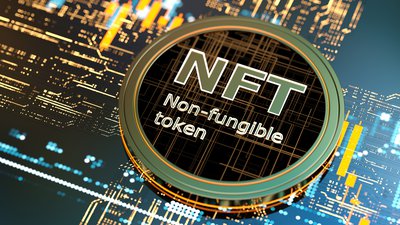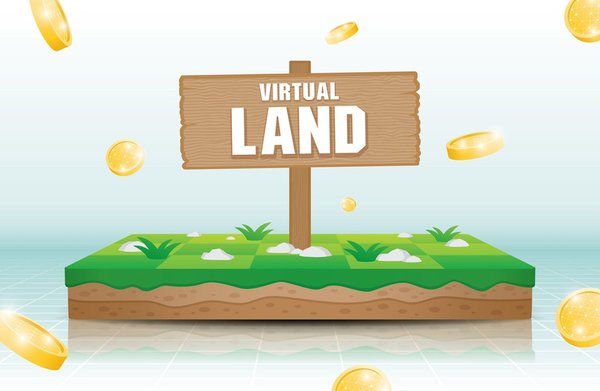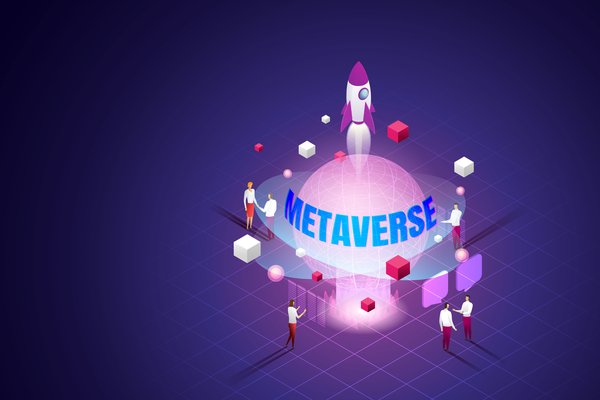As the news continues to report on the ever-changing world of digital real estate and the metaverse, a lot of people have questions. The main one: What is digital real estate? This once-obscure asset type is being regularly thrust into the headlines and with little explanation of what it is or why it’s worth anything.
How is the metaverse related to digital real estate?
Before you can discuss digital real estate, you have to talk about the metaverse. This is where digital real estate exists, after all. When talking about the metaverse, a lot of different terms get thrown around, but for the sake of anyone interested in digital real estate, the definition is pretty simple.
The metaverse is a series of 3D virtual worlds built to allow users to interact much like they do in video games, as well as in real life. You can meet your friends there, attend parties and educational events, buy things, and even hold title to virtual real estate.
Although there are many metaverse worlds, there is only one metaverse, and you don’t need any special equipment to connect to it. The most popular worlds are easy to visit with a desktop computer, or even a smartphone.
What is digital real estate?
Digital real estate is to the metaverse what real world-real estate is to the real world. You can think of it as buying land on another planet, where the rules of Earth no longer apply. Like buying land on the moon, there are still a limited number of parcels per platform, which creates scarcity and helps establish a more stable value.
Depending on the platform in which you purchase virtual real estate, the land you buy can have various attributes. In more realistic platforms, this is typically limited to the size of the lot and a unique location, which can be found on the world map. In platforms that are more gaming-focused, it might also include additional attributes such as natural resources that can be mined and sold.

How can digital real estate be used?
Right now, businesses and real estate investors are testing the waters to see just how far they can push the limits of digital real estate, but there are many common use cases that have already developed.
For example, you might open a digital billboard business on your virtual real estate, selling ad space to companies interested in testing the waters. Or, if you want to build something more interesting, you might create a shopping center where you can rent individual sections out to tenants to create passive income.
Business owners are also taking advantage of what is possible in the metaverse by creating digital twins of their company headquarters for meetings with staff or clients, expanding their company’s footprint by creating interactive experiences based on their branding, or sponsoring special events that appeal to their target audiences.
Many fashion brands have gotten very involved in the world of virtual apparel via the metaverse as well. They’re using their virtual real estate for selling unique clothing items for avatars, using non-fungible tokens (NFTs) and opening up a whole new revenue stream.
Why is digital real estate valuable?
A lot of people wonder why anyone in their right mind would buy land in a world you can’t see, smell, hear, or touch. There are many reasons to buy digital real estate. If you think back to the days of the beginning of the World Wide Web (WWW), it seemed silly to buy a website or a URL, but we know now that those things are often quite valuable for companies looking to reach their customers.
Metaverse real estate is much the same. While some people are buying it to hold, many others are buying it with a purpose in mind. For example, you might buy a parcel large enough to open an entertainment venue and book acts that would attract people who want to buy tickets. Or, as mentioned above, you might simply want to build a bunch of rental units and rent those to companies that aren’t ready to buy metaverse real estate but want to test the waters or need help with development of their projects.
Just as with real world real estate, digital real estate is valuable because people want it. This is the reason anything is valuable. But, in the case of virtual real estate, there are several attributes that help to explain its value.
First, the fact that each plot of virtual land is wholly unique is very important. This is why they’re bought and sold using NFTs. The property is wholly unique and therefore non-fungible, and it can’t be swapped like-for-like for anything else. A property’s uniqueness may be due solely to its location on the map relative to other properties, streets, public gathering spaces, and popular attractions, or it could be due to unique resources the property possesses.
When you buy digital real estate, you get a deed of sorts. The information that proves you own the property is stored on the blockchain as an NFT. The token is your deed and what you will give to the buyer if you sell the property. (Not all worlds offer NFT-based real estate, but we’re not talking about those here.)
As long as the world persists, your property will be secured with the NFT you hold. You can do anything you want with it, including renting, selling, demolishing existing structures, building new structures, inviting the queen over for tea, or giving someone else the right to build on your lot.v
Related Topics
Do digital worlds persist?
When discussing the future of real estate in a place that essentially isn’t real, it’s important to understand the history of digital worlds. Many people ask what happens if the world disappears and you’re left with an NFT to nothing. This is the big fear.
The truth is that digital worlds can persist for some time, provided they have an invested community. That goes for worlds that were created years before the idea of NFT real estate ever crossed anyone’s mind. The best case study we have for this kind of digital world comes from a platform called Second Life, which came into existence in 2003 and continues to have a solid following despite the small framework. It’s only a fraction of the size of today’s metaverse worlds.
Many metaverse worlds are also protected by the owners of both the digital land and currency of the world itself. This gives them voting rights in the world, which would include things such as voting to keep the place running, should that ever become an issue. Because of the decentralized nature of these platforms, no single person or entity can choose to close the doors; it has to be a global decision.
Does that mean that your platform’s value can’t ever go to zero? Of course not. Just because a platform remains open doesn’t mean it remains valuable. The value is often brought by the community, and that’s why it’s so important for owners of digital land to also be active participants in their worlds.














